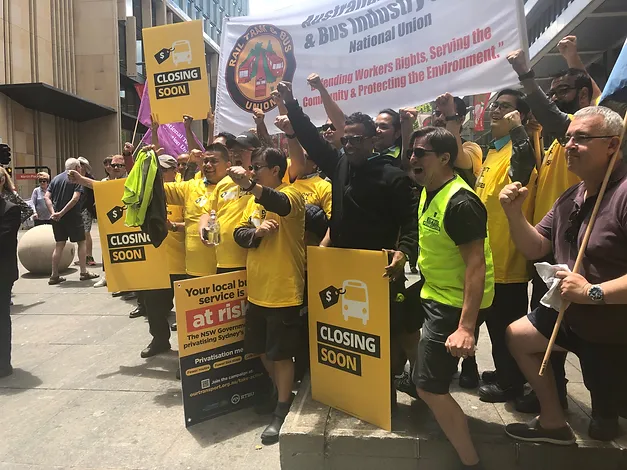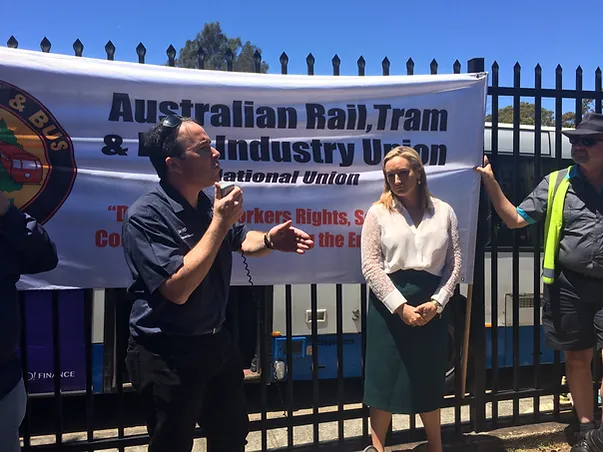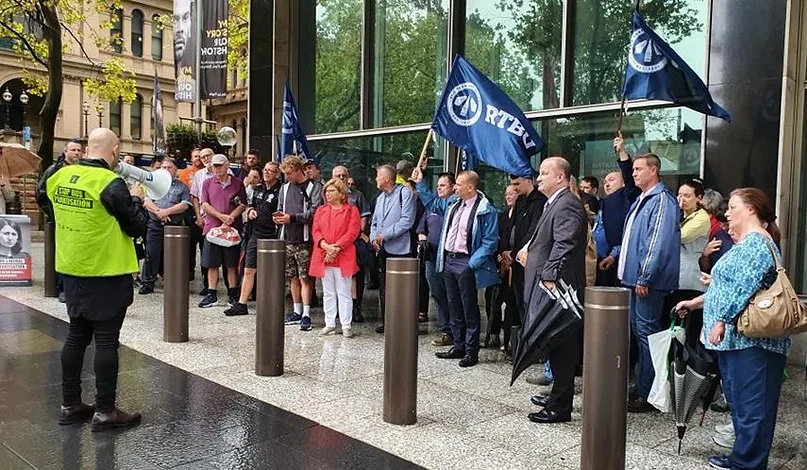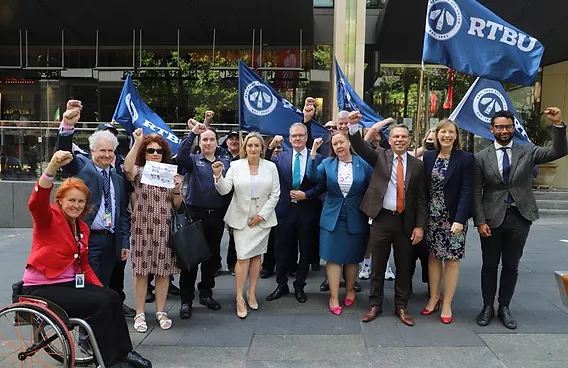Privatisation
On May 14th 2020, Transport for NSW (TfNSW) announced the intention to privatise the remaining government run public buses in Sydney. The now ex-State Transit Authority covered regions 6, 7, 8 & 9 and together are responsible for over 75% of trips in Sydney. These are the ‘Core’ Regions of Sydney’s bus network although privatisation didn’t start there.
On July 1st 2017, the Newcastle branch of the STA operations was privatised. This was a dark day in the history of our Division and caused immeasurable harm between members who felt betrayed in Newcastle and members who felt misled in Sydney. Newcastle workers were told that ‘Sydney wasn’t with them’, while members in Sydney were told that Newcastle workers had decided they could get a better deal through negotiation. None of that was true, and if the Tram & Bus Division had stood by its members they way they were obligated to, perhaps we’d still have government buses in Sydney and Newcastle.
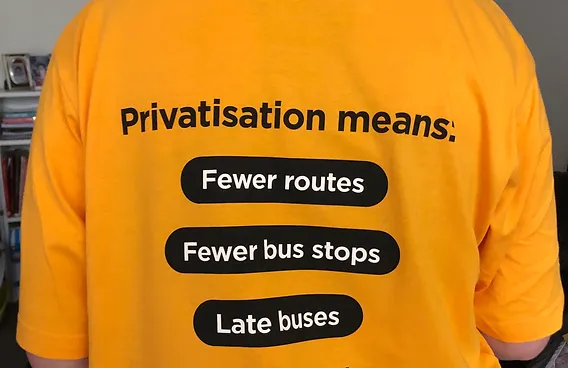
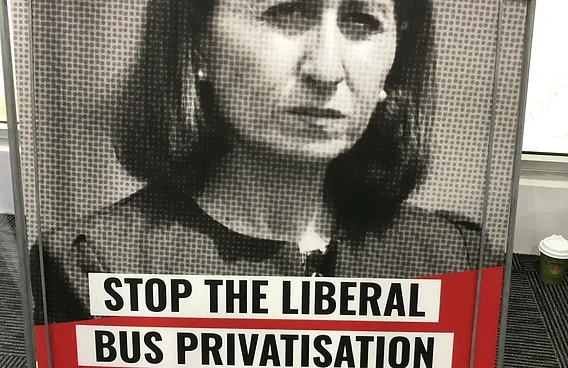
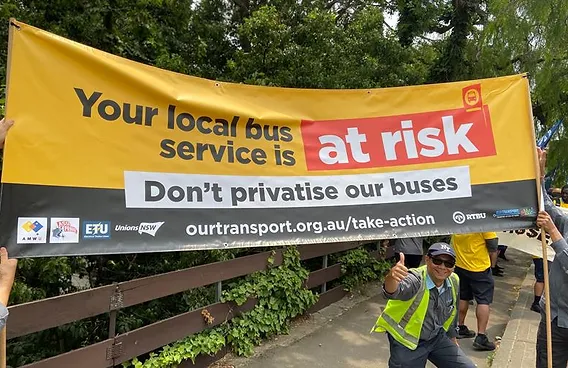
This was followed by Region 6 (Sydney’s Inner West). Taken over by Transit Systems on July 1st 2018, this was another case of failing to fight. Relying instead on a generic Unions NSW campaign, industrial action was actually kept secret from workers outside of Region 6. This unforgivable decision split our Division once again. Members in Region 6 couldn’t understand why the rest of the depots did not support them while the rest of the depots couldn’t understand why they weren’t involved. The one chance to reunify members was thrown away by publicly giving the Government warning of a strike which resulted in formal orders against industrial action being issued by the NSW Industrial Relations Commission. Breaking these orders was not something the former leadership was willing to do.
These decisions were made by the previous Secretary; the same person running for the position of Divisional Secretary in the upcoming RTBU elections. The failure in Newcastle paved the way for the privatisation in Sydney. These failures were the reason that David Babineau and Daniel Jaggers ran for the positions of Divisional Secretary and President respectively. It wasn’t that there was an expectation that everything could have been different, but the failure to even fight cannot be excused.
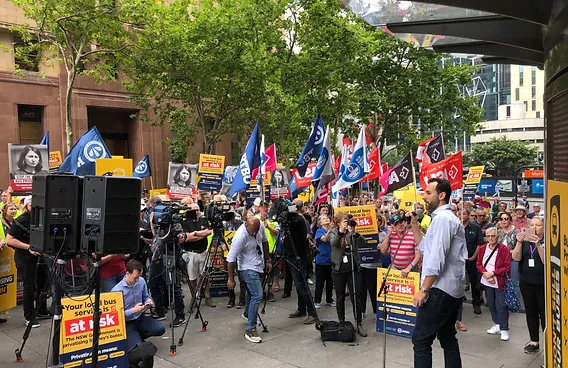
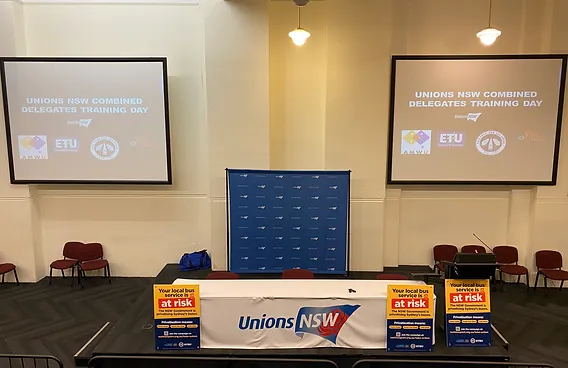
Our anti-privatisation campaign started with getting the right people involved. Dan Scaysbrook, an ex-ACTU trainer who is now the National Organising Manager for the Australian Conservation Foundation. Dan designed and speadheaded our own campaign which linked into the Unions NSW campaign. We had multiple local rallies and called on our allies in Labor and the Greens. We had rallies in every region as well as combined rallies in Martin Place. We gathered enough signatures for 3 parliamentary debates where we gained publicity for our fight and gained strength from a closer working relationship with our political allies. We held a ‘Family Fun Day’ for workers to attend instead of their Sunday shifts(which are voluntary), distributed thousands of shifts and signage and hired a truck to drive around Sydney with a massive billboard to help bring the public on board.
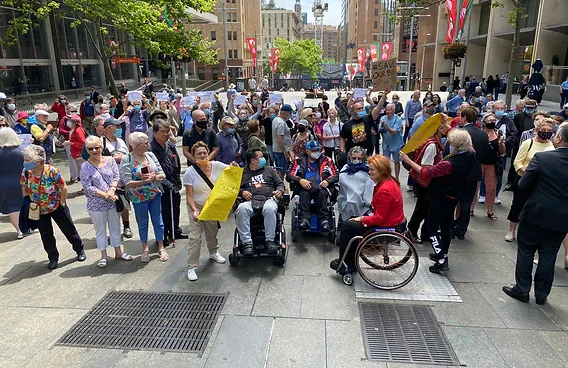
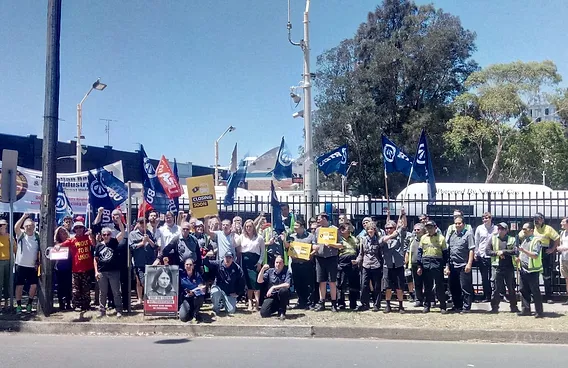
When COVID hit we continued our campaign and moved to mainly online actions. The ‘Complain to Constance’ campaign saw thousands of emails sent directly to the then Transport Minister’s office, and we held virtual organising meetings to keep supporters involved. When social distancing was brought in by law we had a day of action across 8 electorates and held socially distanced rallies outside of the Liberal electoral offices. When it became clear that the last parliamentary debate would not allow an audience, we organised a 50 car convoy to circle parliament house while the debate went on. You could hear the car horns in every office in the building.
When COVID hit we continued our campaign and moved to mainly online actions. The ‘Complain to Constance’ campaign saw thousands of emails sent directly to the then Transport Minister’s office, and we held virtual organising meetings to keep supporters involved. When social distancing was brought in by law we had a day of action across 8 electorates and held socially distanced rallies outside of the Liberal electoral offices. When it became clear that the last parliamentary debate would not allow an audience, we organised a 50 car convoy to circle parliament house while the debate went on. You could hear the car horns in every office in the building.
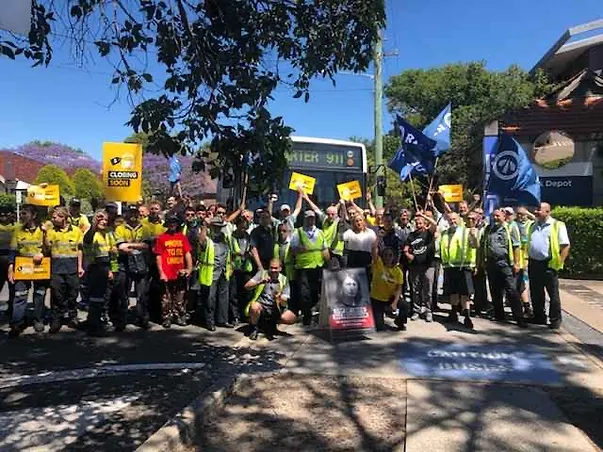
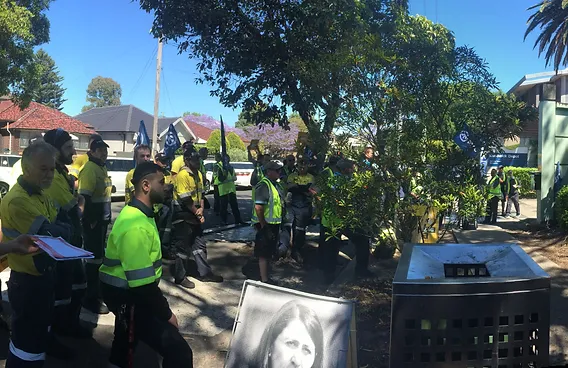
As COVID restrictions kicked in it became clear that is was going to be nearly impossible to continue to conduct a public campaign. It also became clear that the government was going to push through with privatisation regardless of the pandemic. Drivers demanded action and we wrote to the Premier of NSW Gladys Berejiklian to notify her of a 48 hour strike. The govt went into a panic and the Transport Minister wanted to know what they could do to head off the action. They offered a 4 hour paid stop work meeting facilitated by STA where senior TfNSW management would address staff about the primary concern of a two-tiered workplace. The members seemed evenly split on this action and there was a week of almost daily meetings of the Divisional Executive. A resolution was passed to support the action but at every meeting those whose depots were opposed to it would seek to have that resolution overturned. Eventually, one depot changed its position and the resolution to take action was overturned and the offer of a paid stop work meeting was accepted.
At this meeting senior TfNSW officials said there would be no two-tiered system in Regions 7, 8, or 9. They said clause in the Contract (which the Division had fought to be included) meant it could not happen. After this, we secured limited access to the contract and had our legal team look it over. They identified a couple issues with it and we lobbied TfNSW to have it fixed. The last item we wanted was for the STA shift parameters (maximum & minimum shift lengths, break times etc) to be put into the contract as a clause that would expire after a new Agreement had been negotiated. This would have stopped a two-roster system being introduced. TfNSW refused and were then surprised when Busways registered a Greenfield Agreement. In addition to the Greenfield Agreement, TfNSW also allowed Busways to employ drivers before they took over Ryde & Willoughby depots. This allowed them to create an even worse Enterprise Agreement as a back up to the Greenfield. The Division ran a legal case that culminated in a full bench decision of the Federal Court unanimously in favour of the Union.
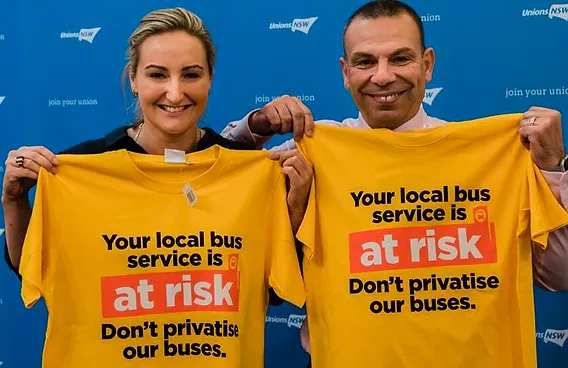
The stop work meeting was effectively the end of the anti-privatisation campaign. Some actions would continue but there would be no hope of using the momentum to force the govt to change it’s mind. COVID restrictions became more and more harsh and the opportunity to run a campaign in these conditions was extremely limited. Eventually, we shifted towards campaigning to get as much accountability for service changes made by TfNSW in the regions immediately before and after privatisation. We had drivers in the Northern Beaches handing out cards telling commuters angry at having their services cut to call the Transport minister. This resulted in a 20% increase to complaints received by TfNSW. We also worked with local community groups to fight for specific routes as a way of keeping as much work as possible for members.
We also succeeded in privatisation inquiry and will hold Labor to account.
At the end of the day, the fight against privatisation did not succeed, but it did help deliver better results for drivers by showing the incoming companies that the RTBU was willing and able to fight for the conditions of our members.
Ultimately, the battle against privatisation was about getting the best result for members and standing up for workers. Conviction is meaningless if you don’t act on it.
